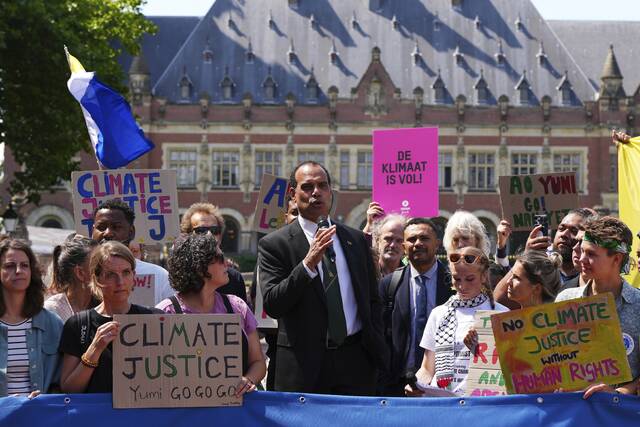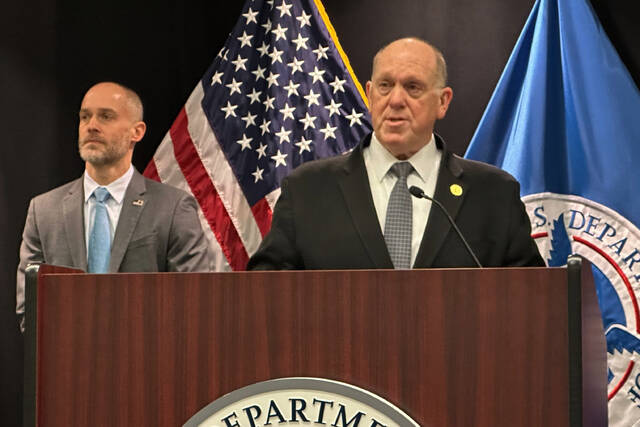THE HAGUE, Netherlands — The U.N.’s highest court is handing down a historic opinion on climate change Wednesday, a decision that could set a legal benchmark for action around the globe to the climate crisis.
After years of lobbying by vulnerable island nations who fear they could disappear under rising sea waters, the U.N. General Assembly asked the International Court of Justice in 2023 for an advisory opinion, a non-binding but important basis for international obligations.
A panel of 15 judges was tasked with answering two questions. First, what are countries obliged to do under international law to protect the climate and environment from human-caused greenhouse gas emissions? Second, what are the legal consequences for governments when their acts, or lack of action, have significantly harmed the climate and environment?
“The stakes could not be higher. The survival of my people and so many others is on the line,” Arnold Kiel Loughman, attorney general of the island nation of Vanuatu, told the court during a week of hearings in December.
In the decade up to 2023, sea levels rose by a global average of around 1.7 inches, with parts of the Pacific rising higher still. The world has also warmed 1.3 degrees Celsius (2.3 Fahrenheit) since preindustrial times because of the burning of fossil fuels.
Vanuatu is one of a group of small states pushing for international legal intervention in the climate crisis but it affects many more island nations in the South Pacific.
“The agreements being made at an international level between states are not moving fast enough,” Ralph Regenvanu, Vanuatu’s minister for climate change, told The Associated Press.
Any decision by The Hague-based court would be non-binding advice and unable to directly force wealthy nations into action to help struggling countries. Yet it would be more than just a powerful symbol, since it could serve as the basis for other legal actions, including domestic lawsuits.
“What makes this case so important is that it addresses the past, present, and future of climate action. It’s not just about future targets — it also tackles historical responsibility, because we cannot solve the climate crisis without confronting its roots,” Joie Chowdhury, a senior attorney at the Center for International Environmental Law, told AP.
Activists could bring lawsuits against their own countries for failing to comply with the decision and states could return to the International Court of Justice to hold each other to account. And whatever the judges say will be used as the basis for other legal instruments, like investment agreements, Chowdhury said.
The United States and Russia, both of whom are major petroleum-producing states, are staunchly opposed to the court mandating emissions reductions.
Simply having the court issue an opinion is the latest in a series of legal victories for the small island nations. Earlier this month, the Inter-American Court of Human Rights found that countries have a legal duty not only to avoid environmental harm but also to protect and restore ecosystems. Last year, the European Court of Human Rights ruled that countries must better protect their people from the consequences of climate change.
In 2019, the Netherlands’ Supreme court handed down the first major legal win for climate activists when judges ruled that protection from the potentially devastating effects of climate change was a human right and that the government has a duty to protect its citizens.















